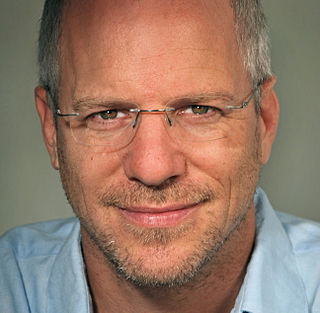The topic of this article may not meet Wikipedia's notability guideline for music .(September 2011) |
The topic of this article may not meet Wikipedia's notability guideline for music .(September 2011) |
Dunbar earned a Doctor of Musical Arts degree in Composition [1] at Stanford University, working under composers Chris Chafe, John Chowning, Jonathan Harvey and Wayne Peterson. [2] [3] During the years when Dunbar worked at CCRMA (Center for Computer Research in Music and Acoustics, Stanford University), the composer produced computer music compositions which integrated traditional instruments, poetic recitations and vocal melodies with algorithmically composed music [4] which was seeded with world music motives. [5] This algorithmic composition [6] and digital synthesis required fluency in computer languages including Common Lisp, Common Lisp Music [7] [8] and Heinrich Taube's Stella. [9] This work culminated in the production of the CD, Spirit Journey. Prior to the CCRMA years, Dunbar earned a Master of Arts degree in Music from San Jose State University, where the composer studied composition, counterpoint and agogic accents with Tikey Zes, electronic music composition with Allen Strange, and instrumental composition with Jorge Liderman. Currently Dunbar composes works for orchestra, [10] [11] [12] and other forces, directs Amberlight Conservatory and teaches at Tarrant County College in the Dallas-Fort Worth Metroplex.[ citation needed ]

In music, a quartet is an ensemble of four singers or instrumental performers.

Milton Byron Babbitt was an American composer, music theorist, mathematician, and teacher. He was a Pulitzer Prize and MacArthur Fellowship recipient, recognized for his serial and electronic music.

IRCAM is a French institute dedicated to the research of music and sound, especially in the fields of avant garde and electro-acoustical art music. It is situated next to, and is organisationally linked with, the Centre Pompidou in Paris. The extension of the building was designed by Renzo Piano and Richard Rogers. Much of the institute is located underground, beneath the fountain to the east of the buildings.

Roger Lee Reynolds is an American composer. He is known for his capacity to integrate diverse ideas and resources, and for the seamless blending of traditional musical sounds with those newly enabled by technology. Beyond composition, his contributions to musical life include mentorship, algorithmic design, engagement with psychoacoustics, writing books and articles, and festival organization.
William Allaudin Mathieu is a composer, pianist, choir director, music teacher, and author. He began studying piano at the age of six, and began recording his music and compositions in the 1970s on his record label, Cold Mountain Music. Mathieu has composed and recorded solo piano works, chamber pieces, choral music, and song cycles, and he has written four books on music, music theory, and how to live a musical life.
Elodie Lauten was a French-born American composer described as postminimalist or a microtonalist.
Richard Danielpour is an American composer and academic, currently affiliated with the Curtis Institute of Music and the University of California, Los Angeles.
Richard Wernick is an American composer. He is best known for his chamber and vocal works. His composition Visions of Terror and Wonder won the 1977 Pulitzer Prize for Music.
Michael Blake is a South African contemporary classical music composer and performer. He studied in Johannesburg in the 1970s and was associated with conceptual art and the emergence of an indigenous experimental music aesthetic. In 1976 he embarked on 'African Journal', a series of pieces for Western instruments that drew on his studies of traditional African music and aesthetics, which continued to expand during two decades in London until he returned to South Africa in 1998. From around 2000 African music becomes less explicit on the surface of his compositions, but elements of rhythm and repetition remain as part of a more postcolonial engagement with material and form. He works in a range of styles including minimalism and collage, and now also forages for source material from the entire musical canon.
Matthew John Hindson AM is an Australian composer.
Stephen Whittington is an Australian composer, pianist, teacher and writer of music.

Amos Elkana is an Israeli composer and improviser.

Lior Navok is an Israeli classical composer, conductor and pianist. He was born in Tel Aviv. Navok studied composition privately with the Israeli composer Moshe Zorman, and completed a Bachelor's degree at the Jerusalem Academy of Music and Dance, where he studied composition and conducting. He later completed he studied for a Master's and Doctorate at the New England Conservatory, where he studied with John Harbison.
Ludmila Yurina is a Ukrainian composer, pianist and musicologist, living in the United States.
Richard Karpen is an American composer of electronic and acoustic music. He is also known for developing computer applications for music and composition.
Juan Pampin is an Argentine composer and sound artist who lives and works in Seattle.
Vivian Adelberg Rudow is an American composer, performance artist, conductor and concert producer. She composes in the genres of acoustic and electroacoustic music with works ranging from solo to full orchestra. She lives in Baltimore, Maryland.
Richard Festinger is an American composer of contemporary classical music, pianist and educator.
Richard David Carrick is an American composer, pianist and conductor. He was a Guggenheim Fellow in Music Composition for 2015–16 while living in Kigali, Rwanda. His compositions are influenced by diverse sources including traditional Korean Gugak music, the flow concept of Mihaly Csikszentmihalyi, Gnawa Music of Morocco, Jazz, experimental music, concepts of infinity, the works of Italo Calvino and Ludwig Wittgenstein, and his work as improviser.
John Kinsella was an Irish composer and the country's most prolific symphonist during the twentieth century.